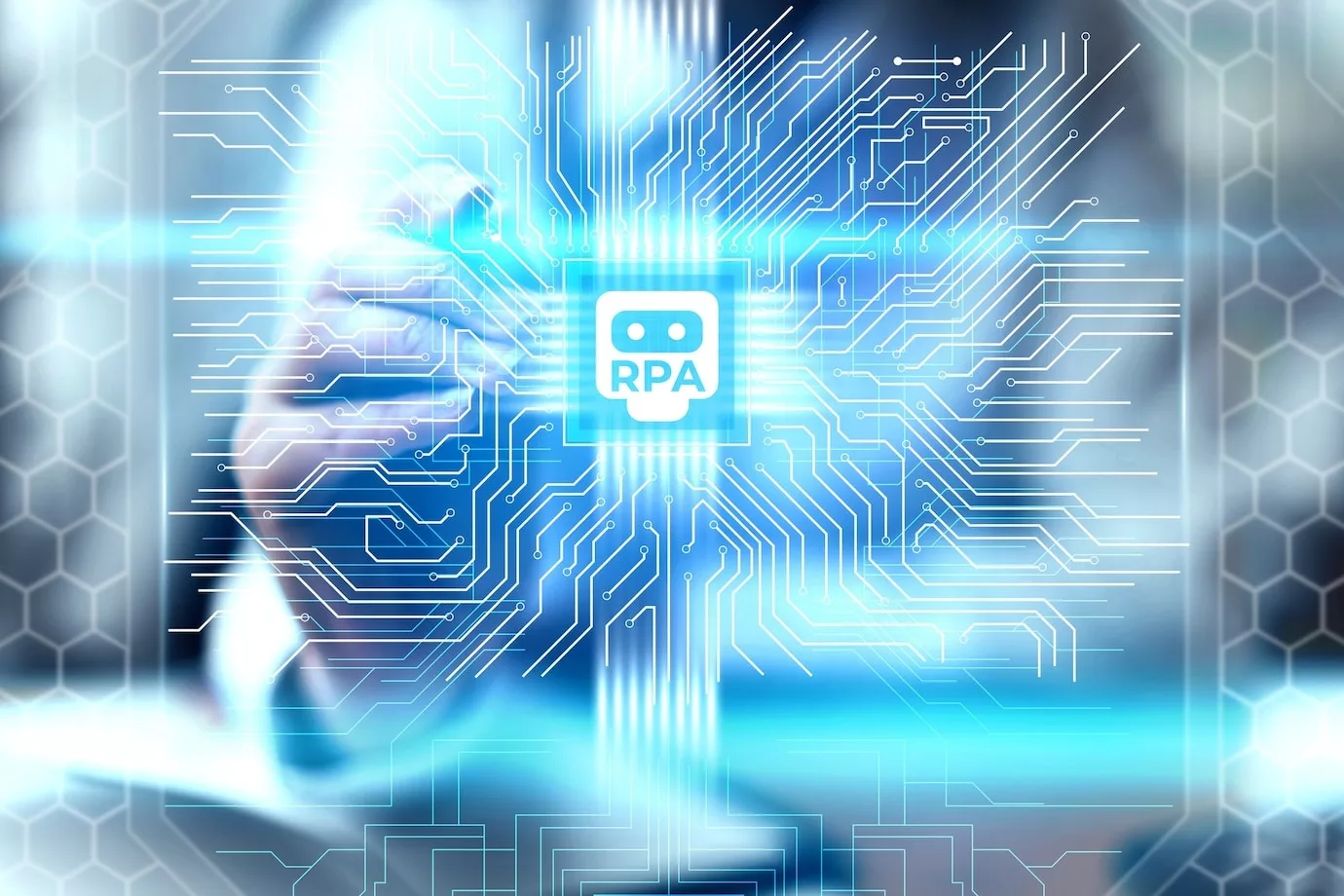Information Technology (IT) and Artificial Intelligence (AI) are integral to our daily lives. They have far-reaching impacts on industries, businesses, and society. But what exactly sets these fields apart, and how do they intersect?
To answer these questions and provide you with a deeper understanding, we will discuss Information Technology Vs. Artificial Intelligence in this article. Below, we’ll share their definitions, evolution, application, and critical roles. Whether you’re a seasoned IT professional or a newcomer eager to explore these transformative fields, this guide will equip you with the knowledge to navigate the dynamic intersection of IT and AI.
Without further ado, let’s get started.
Information Technology Vs Artificial Intelligence – Exploring the Differences

Definition
Information Technology (IT)
IT refers to the use of computers, software, hardware, networks, and other technologies to store, retrieve, transmit, and manipulate your data and information. It covers a wide range of activities, including computer programming, system administration, network management, and data analysis.
Artificial Intelligence (AI)
AI is a branch of computer science that creates systems and machines to perform tasks that typically require human intelligence. These tasks include learning, reasoning, problem-solving, perception, and language understanding. AI systems simulate human-like cognitive functions.
Impact
Information Technology (IT)
IT enhances efficiency, communication, and data management for businesses and society. It has streamlined processes, improved productivity, and enabled the digital transformation of various industries. As a backbone of modern organizations, it ensures smooth operations through the management of hardware, software, and data.
Artificial Intelligence (AI)
AI revolutionizes industries through the automation of complex tasks, making data-driven decisions, and enabling machines to learn from your provided data and improve over time. It has applications in healthcare, finance, autonomous vehicles, and more. The impact of AI is still evolving, with debates around ethics, job displacement, and the role of AI in our society.
Top Applications of Information Technology (IT)
Network Administration
IT professionals manage and maintain computer networks, ensuring they operate efficiently and securely. This includes setting up routers, switches, firewalls, and other networking equipment to enable data communication within organizations.
Database Management
Database administrators (DBAs) design, implement, and maintain databases that store and organize critical data for your business. These databases are essential for various applications, like customer relationship management (CRM) and enterprise resource planning (ERP) systems.
Cybersecurity
With the increasing threat of cyberattacks, IT plays a crucial role in protecting your digital assets. IT specialists develop security protocols, monitor for potential threats, and respond to security incidents to safeguard your organization’s information and systems.
Top Applications of Artificial Intelligence (AI)
Natural Language Processing (NLP)
NLP is a branch of AI that enables machines to understand, interpret, and generate human language. It’s used in chatbots, virtual assistants (e.g., Siri, Alexa), language translation services, sentiment analysis, and voice recognition systems.
Computer Vision
AI-powered computer vision systems can analyze and interpret visual information from images and videos. Applications include facial recognition, autonomous vehicles, medical image analysis (e.g., diagnosing diseases from medical images), and quality control in manufacturing.
Machine Learning in Healthcare
AI and machine learning are revolutionizing healthcare by improving diagnostic accuracy, treatment recommendations, and patient care. AI is used for predicting disease outcomes, drug discovery, personalized treatment plans, and medical image analysis.
Information Technology (IT) Examples
Online Banking Systems
IT is crucial in the development and maintenance of online banking systems. These systems enable your customers to access their accounts, check balances, transfer funds, pay bills, and perform various financial transactions securely over the Internet.
Cloud Computing Services
Cloud computing is an IT innovation that provides your organization with scalable and flexible access to computing resources. This includes servers, storage, and software. Popular cloud platforms like Amazon Web Services (AWS), Microsoft Azure, and Google Cloud enable businesses to reduce infrastructure costs, scale their operations, and deploy applications globally.
Customer Relationship Management (CRM) Software
CRM systems are IT solutions that help businesses manage their interactions with customers and potential customers. They store and analyze customer data, track sales leads, and facilitate communication between teams. CRM software like Salesforce and HubSpot enhances customer engagement and sales productivity by streamlining marketing, sales, and support processes.
Artificial Intelligence (AI) Examples
Autonomous Vehicles
AI helps in the development of self-driving cars. These vehicles use machine learning algorithms, computer vision, and sensor data (such as LiDAR and cameras) to navigate roads, make real-time decisions, and detect and respond to obstacles and traffic conditions. Companies like Tesla, Waymo, and Uber are working on autonomous vehicle technology.
Medical Diagnosis and Imaging
AI is used to assist medical professionals in diagnosing diseases and interpreting medical images more accurately. For example, IBM’s Watson for Oncology uses AI to provide treatment recommendations for cancer patients.
Virtual Assistants
Virtual assistants like Amazon’s Alexa and Apple’s Siri are powered by AI and natural language processing. These AI-driven devices understand and respond to spoken or typed commands, answer questions, and control smart home devices. They perform tasks like setting reminders and providing weather updates, making them valuable tools in your daily lives.
Career Opportunities: Information Technology vs. Artificial Intelligence

Information technology vs. artificial intelligence jobs and careers are in wide range, but they differ in focus and specialization. Here’s a comparison of career opportunities in IT and AI:
Career Opportunities in Information Technology (IT)
Network Administrator: Network administrators manage your organization’s computer networks. They ensure that data flows smoothly between devices, troubleshoot network issues, and maintain network security.
- System Administrator: System administrators manage your organization’s computer systems, including servers and hardware. They install and maintain software, ensure system security, and manage data backups.
- Software Developer: Software developers design, code, and test computer software and applications. They specialize in web development, mobile app development, or software engineering for specific industries.
- Database Administrator: Database administrators (DBAs) design, implement, and maintain databases. They ensure data integrity, optimize database performance and troubleshoot issues.
- Cybersecurity Analyst: With the increasing threat of cyberattacks, cybersecurity analysts work to protect organizations from security breaches. They monitor networks, investigate security incidents, and implement security measures.
- IT Support Specialist: IT support specialists provide technical assistance to end-users, troubleshoot hardware and software issues, and assist with setting up and maintaining computer systems.
- Cloud Architect: Cloud architects design and manage cloud-based solutions for organizations. They work with cloud platforms like AWS, Azure, or Google Cloud to enable scalability and flexibility.
Career Opportunities in Artificial Intelligence (AI)
- Machine Learning Engineer: Machine learning engineers design and implement machine learning models and algorithms. They work on applications like natural language processing, image recognition, and recommendation systems.
- Data Scientist: Data scientists extract insights from large datasets using statistical analysis and machine learning techniques. They help organizations make data-driven decisions and solve complex problems.
- AI Research Scientist: AI research scientists work on cutting-edge AI research projects, often in academia or research institutions. They contribute to advancements in AI algorithms and technologies.
- AI Software Developer: AI software developers create software applications that incorporate AI and machine learning capabilities. They work on projects like chatbots, virtual assistants, and autonomous systems.
- Computer Vision Engineer: Computer vision engineers specialize in developing systems that can interpret and analyze visual information from images and videos. Applications include autonomous vehicles, medical image analysis, and facial recognition.
- Natural Language Processing (NLP) Engineer: NLP engineers build systems that understand and generate human language. They work on applications like language translation, sentiment analysis, and chatbots.
- AI Ethics and Policy Specialist: As AI technologies raise ethical and policy concerns, specialists in AI ethics and policy work to develop guidelines and regulations to ensure responsible AI development and use.
Pros and Cons of Artificial Intelligence Vs. Information Technology

Both IT and AI offer unique opportunities and challenges. IT provides a stable and versatile career with a wide range of applications, while AI offers the chance to work on cutting-edge technology. The choice between the two depends on individual interests, career goals, and willingness to adapt to the evolving tech landscape.
Here’s a comparison of the pros and cons of IT and AI:
Information Technology (IT)
Pros
- Versatility: IT offers a wide range of career options and roles, allowing individuals to choose from various specializations such as network administration, software development, cybersecurity, and more.
- Stability: IT has been a well-established field for decades, offering stable and well-defined career paths with consistent professional demands.
- Diverse Industries: IT is integral to virtually all industries, from healthcare and finance to entertainment and manufacturing, providing opportunities to work in various sectors.
- Lower Entry Barrier: Many entry-level IT positions require a relatively lower level of education, making it accessible for individuals with various educational backgrounds and skill levels.
- Problem Solving: IT professionals often engage in creative problem-solving, troubleshooting issues, and finding innovative solutions to technical challenges.
Cons
- Constant Learning: The fast pace of technological advancements in IT means professionals must continuously update their skills and knowledge to remain competitive in the job market.
- Long Hours: IT professionals have to work irregular hours, including evenings and weekends, to address system issues or meet project deadlines.
- Stressful Situations: Dealing with technical problems and security breaches can be stressful, and IT professionals face high-pressure situations.
- Job Outsourcing: Some IT jobs are outsourced to countries with lower labor costs, potentially leading to job competition and wage stagnation.
Artificial Intelligence (AI)
Pros
- Cutting-Edge Technology: AI is at the forefront of technological innovation, offering opportunities to work on groundbreaking projects and contribute to the future of technology.
- High Demand: There is a growing demand for AI specialists across various industries, leading to competitive salaries and job security.
- Solving Complex Problems: AI professionals solve complex, real-world problems using machine learning, deep learning, and data analysis.
- Automation: AI automates repetitive tasks, freeing up time for professionals to focus on more strategic and creative aspects of their work.
Cons
- Specialized Knowledge: AI requires in-depth knowledge of mathematics, statistics, and computer science, making it a challenging field to enter without a strong educational background.
- Ethical Concerns: AI raises ethical issues related to privacy, bias in algorithms, and job displacement, which is a source of moral and regulatory challenges.
- Rapid Changes: AI is a rapidly evolving field, and staying up-to-date with the latest developments and technologies is demanding.
- Data Dependency: AI heavily relies on large datasets, and the quality and availability of data significantly impact the success of AI projects.
Artificial Intelligence vs. Information Technology: Which Is Better

Determining whether Artificial Intelligence (AI) or Information Technology (IT) is “better” depends on your specific goals and interests considering these fields. AI and IT have their own unique strengths and applications. Here’s a breakdown to help you make an informed decision:
AI (Artificial Intelligence)
Strengths
- Cutting-Edge Innovation: AI revolutionizes industries through automation, predictive analytics, and decision-making capabilities.
- Problem Solving: AI solves complex problems, including those related to natural language understanding, image recognition, and decision-making based on your data.
- High Demand: The demand for AI specialists is growing rapidly, leading to competitive salaries and numerous job opportunities in diverse industries.
- Impactful Applications: AI has applications in healthcare (diagnosis and drug discovery), finance (algorithmic trading), autonomous vehicles, recommendation systems, and more.
Considerations
- Specialized Knowledge: Entering the AI field typically requires a strong educational background in mathematics, computer science, and data science, which is more challenging for some individuals.
- Rapid Change: AI is evolving quickly, and staying up-to-date with the latest advancements and technologies is demanding.
- Ethical and Regulatory Challenges: AI raises ethical concerns related to privacy, bias in algorithms, and job displacement, which require careful consideration and ethical decision-making.
IT (Information Technology)
Strengths
- Versatility: IT offers a wide range of career options, from network administration to software development, allowing individuals to choose roles that match their interests and skills.
- Stability: IT has been well-established for decades, providing stable career paths and consistent demand for IT professionals.
- Diverse Industries: IT is integral to virtually all industries, offering opportunities to work in sectors like healthcare, finance, entertainment, and manufacturing.
- Accessibility: Many entry-level IT positions have relatively low entry barriers, making the field accessible to individuals with various educational backgrounds.
Considerations
- Continuous Learning: The rapid pace of technological advancements in IT means that professionals must continuously update their skills and knowledge to remain competitive.
- Stressful Situations: IT professionals may encounter high-pressure situations when dealing with technical problems and security breaches.
- Job Outsourcing: Some IT jobs can be outsourced to countries with lower labor costs, potentially leading to job competition and wage stagnation.